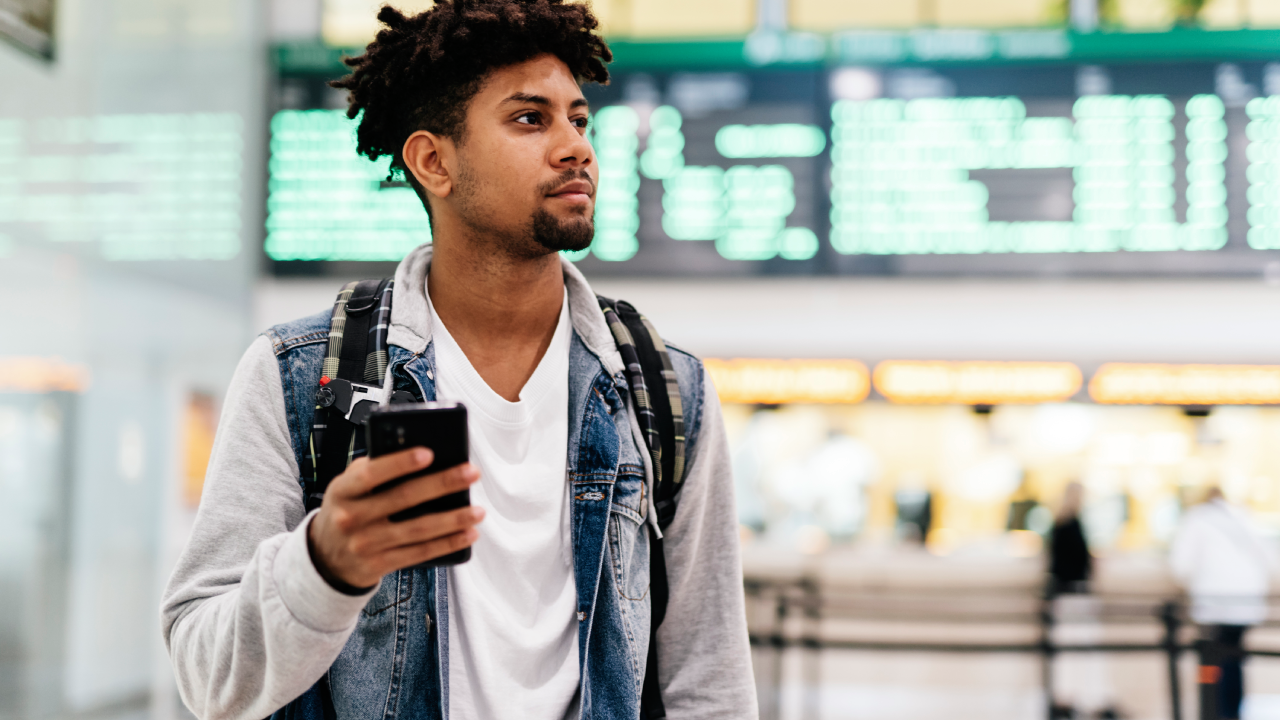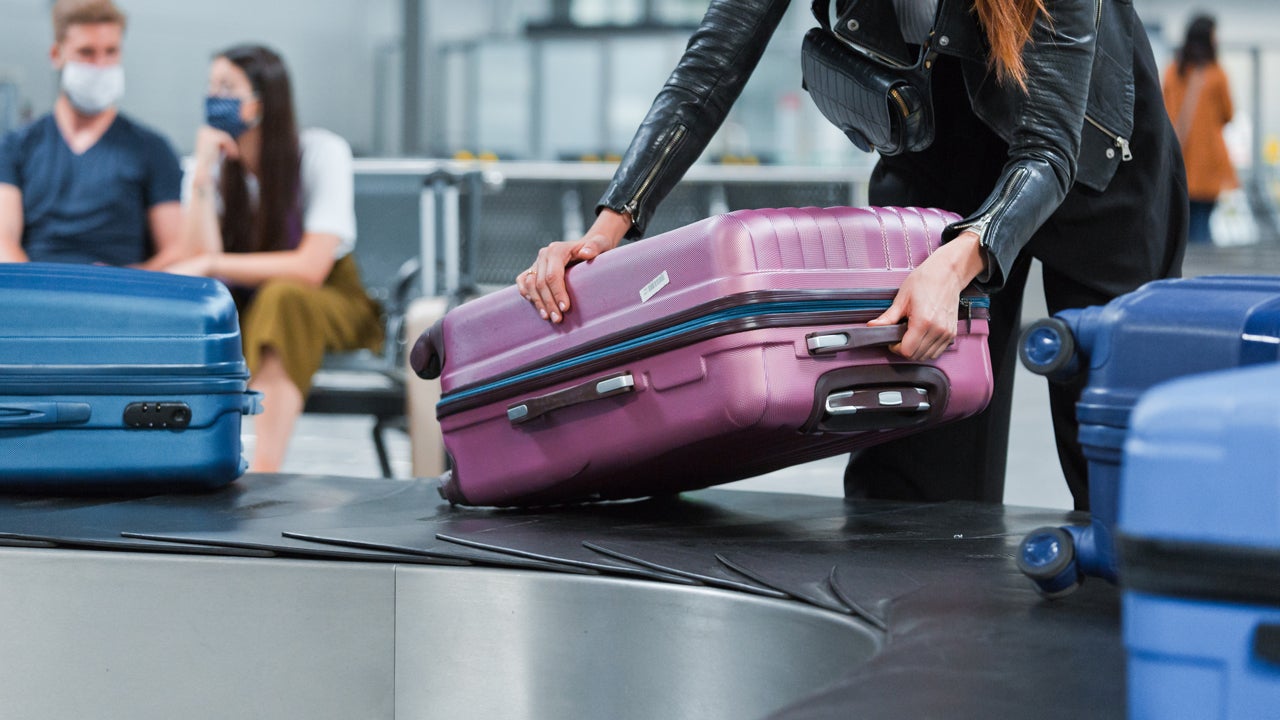How credit cards can help you cope with travel troubles

“Revenge travel” has been a big theme the past couple of years as Americans have been raring to go here, there and everywhere after hunkering down during the COVID-19 pandemic. As a result, the Transportation Security Administration screened a record-high 858.5 million passengers in 2023.
But it hasn’t been a smooth ride for travelers. In fact, if you flew in 2022 or 2023, there was a one-in-five chance your flight was delayed, according to the Bureau of Transportation Statistics.
Cancellations were an especially big problem in 2022, when the airline industry had a tough time ramping back up after the pandemic. That year, 2.7 percent of flights were scrapped entirely, often due to staffing and/or equipment shortages. Last year, however, the cancellation rate was a mere 1.3 percent. Higher prices — not cancellations or delays — were travelers’ biggest concern last summer and last holiday season, according to Bankrate research.
Still, there can be hidden costs associated with delays, cancellations and other travel snafus. For instance, my family flew from New Jersey to California last month, and both of our flights were delayed about two hours. With two young kids in tow, our nerves were strained more than our wallets, though we still ended up spending a bit extra on food (which isn’t cheap when even a basic airport sandwich seems to cost at least $15).
I’ve had a few other travel experiences in recent years which made me wish I had paid with a credit card with strong travel insurance benefits. These perks wouldn’t have kicked in for my two-hour delay, but they definitely could have helped me out the time my flight from Chicago to New York was diverted to Virginia in the middle of the night and the airline basically just left us there. Or the two times in 2022 when airlines canceled our flights the night before they were scheduled to leave (seemingly due to operational issues) and couldn’t rebook us for several days — or when I came down with COVID and had to cancel a trip last fall.
Credit cards with strong travel insurance benefits
Not all travel insurance benefits cover the same situations, but here are a few of the most common credit card travel insurance policy perks:
- Trip delay reimbursement
- Trip cancellation or interruption insurance
- Baggage delay protection
- Lost or damaged baggage protection
- Medical evaluation
- Travel accident insurance
- Auto rental collision insurance
The Chase Sapphire PreferredⓇ Card is a great example. For a fairly modest $95 annual fee, it offers a lot of travel insurance (among other perks). In my estimation, its trip cancellation/interruption benefit (up to $10,000 per person and $20,000 per trip) should have applied to both of my 2022 flight cancellations. I ended up getting those refunded by the airlines and booked new flights on different carriers (since the original carriers couldn’t accommodate us until nearly a week later), but that cost extra.
If I had paid for my original airline tickets with this card, I believe that Chase would have reimbursed me for the difference between my canceled flights and my new bookings (although I would have had to request that refund through a claims administrator). But there’s a chance my request would not have been approved, perhaps if the company argued I should have taken the airline up on its offer to fly a few days later, rather than rebooking myself more immediately at a higher cost on a different airline.
These programs aren’t always easy to navigate; a coworker needed to be very persistent and had to submit several rounds of documentation to win a reimbursement claim involving the Chase Sapphire ReserveⓇ and a trip disrupted by a hurricane. I wish it were easier to utilize, but this coverage can still be very valuable.
For a heftier annual fee ($550), the Sapphire Reserve offers better trip delay insurance, triggering after six hours or an overnight delay, while the Sapphire Preferred triggers after 12 hours or an overnight delay. Both the Sapphire Preferred and the Sapphire Reserve offer the same primary rental car insurance, trip delay insurance (up to $500 per ticket), delayed baggage insurance, emergency medical coverage and more.
Both cards would have been useful the time I got stranded in Virginia (I ended up renting a car and driving about five hours to get home; my company paid for that since it was a business trip, but if it had been a personal trip, I likely could have gotten a reimbursement from a travel card with good trip cancellation/interruption protections).
The Platinum CardⓇ from American Express and the Capital One Venture X Rewards Credit Card also made our list of the best credit cards for travel insurance.
It’s also worth asking what the airline, hotel or rental car agency can do for you if you need to cancel. I lost out on a prepaid rental reservation in 2020 when I was afraid to travel in the early days of the pandemic. But in 2023, when I had COVID and needed to cancel a hotel stay, the hotel generously refunded my supposedly non-refundable reservation. Perhaps it made a difference that I was actually sick that time instead of worried about potentially getting sick, but it never hurts to ask.
The bottom line
Many airlines and hotel chains have relaxed their change and cancellation policies in recent years. So if you do encounter an unexpected issue, it’s a good rule of thumb to start with the travel supplier, and then pull in your credit card company as a backup.
For this reason, I think it only makes sense to pay for travel insurance if you have a particularly complicated or expensive itinerary (especially an international trip). Often, that coverage is comparable to what you may already qualify for between your credit cards and the travel suppliers’ policies.
Paying with a credit card that has strong travel insurance benefits can provide additional assistance without adding to the cost.
Have a question about credit cards? E-mail me at ted.rossman@bankrate.com and I’d be happy to help.
For Capital One products listed on this page, some of the above benefits are provided by Visa® or Mastercard® and may vary by product. See the respective Guide to Benefits for details, as terms and exclusions apply.
Why we ask for feedback Your feedback helps us improve our content and services. It takes less than a minute to complete.
Your responses are anonymous and will only be used for improving our website.






